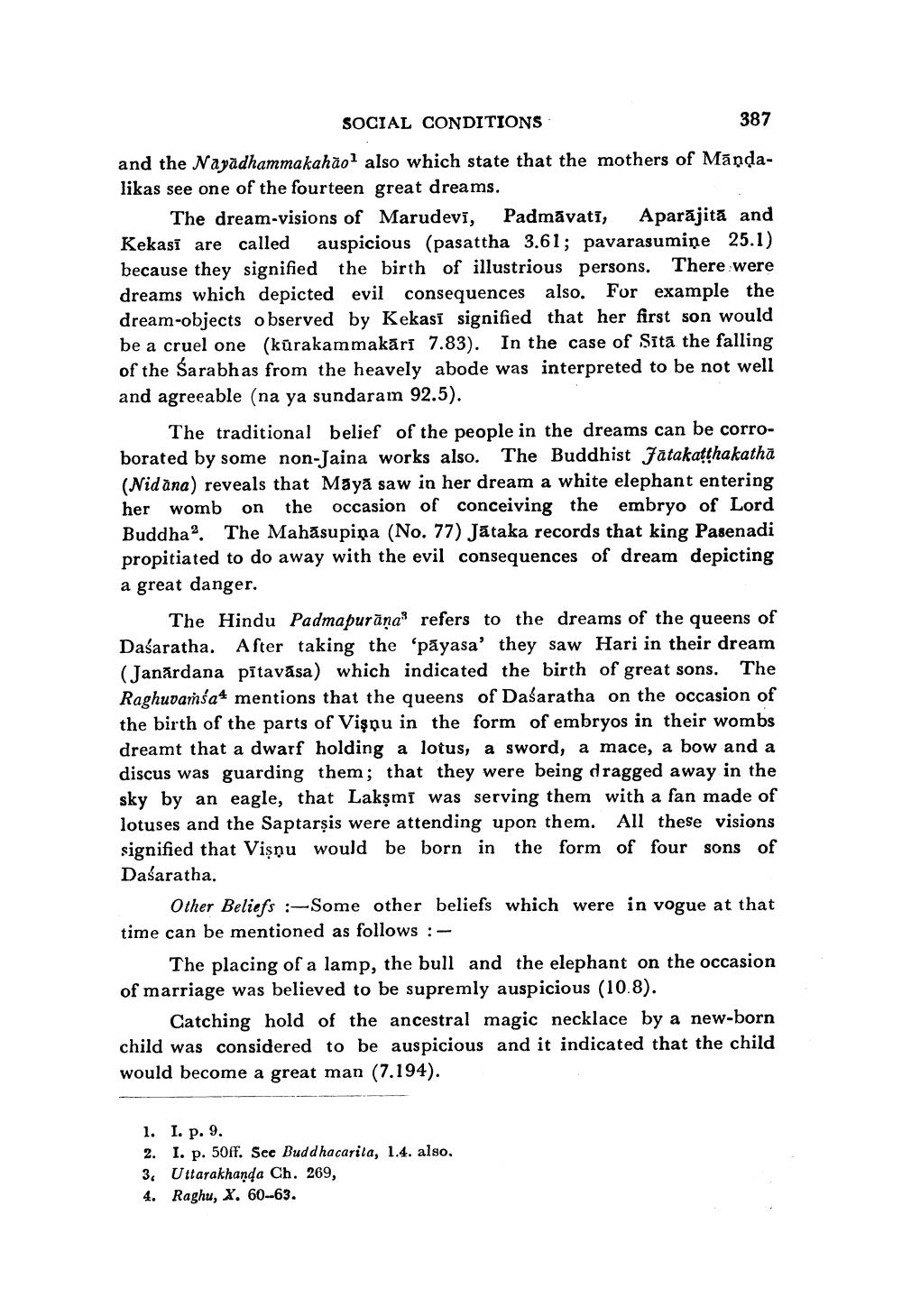________________
SOCIAL CONDITIONS
387
and the Nayādhammakahão? also which state that the mothers of Mándalikas see one of the fourteen great dreams.
The dream-visions of Marudevī, Padmavati, Aparăjită and Kekasi are called auspicious (pasattha 3.61; pavarasumine 25.1) because they signified the birth of illustrious persons. There were dreams which depicted evil consequences also. For example the dream-objects observed by Kekasī signified that her first son would be a cruel one (kūrakammakārī 7.83). In the case of Sitā the falling of the Sarabhas from the heavely abode was interpreted to be not well and agreeable (na ya sundaram 92.5).
The traditional belief of the people in the dreams can be corroborated by some non-Jaina works also. The Buddhist Jatakatthakathā (Nidana) reveals that Maya saw in her dream a white elephant entering her womb on the occasion of conceiving the embryo of Lord Buddha”. The Mahāsupina (No. 77) Jātaka records that king Pasenadi propitiated to do away with the evil consequences of dream depicting a great danger.
The Hindu Padmapurāņa” refers to the dreams of the queens of Dasaratha. After taking the 'payasa' they saw Hari in their dream (Janārdana pītavāsa) which indicated the birth of great sons. The Raghudaśa4 mentions that the queens of Dasaratha on the occasion of the birth of the parts of Vişnu in the form of embryos in their wombs dreamt that a dwarf holding a lotus, a sword, a mace, a bow and a discus was guarding them; that they were being dragged away in the sky by an eagle, that Lakşmi was serving them with a fan made of lotuses and the Saptarsis were attending upon them. All these visions signified that Vişņu would be born in the form of four sons of Dasaratha.
Other Beliefs :-Some other beliefs which were in vogue at that time can be mentioned as follows :
The placing of a lamp, the bull and the elephant on the occasion of marriage was believed to be supremly auspicious (10.8).
Catching hold of the ancestral magic necklace by a new-born child was considered to be auspicious and it indicated that the child would become a great man (7.194).
1. I. p. 9. 2. I. p. 50ff. Scc Buddhacarila, 1.4. also, 3Uttarakhanda Ch. 269, 4. Raghu, X. 60-63.




